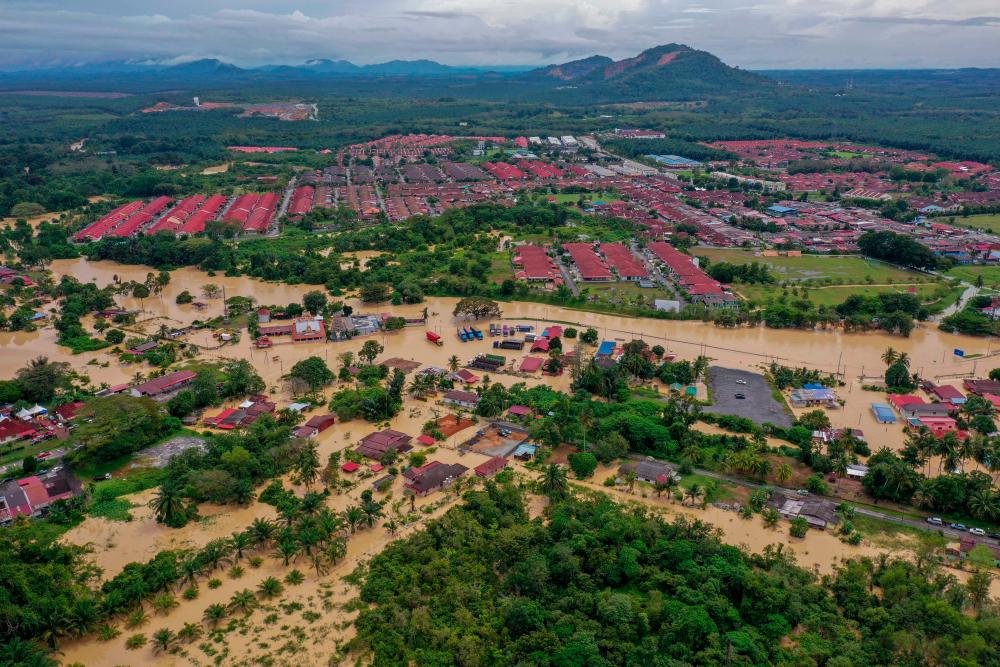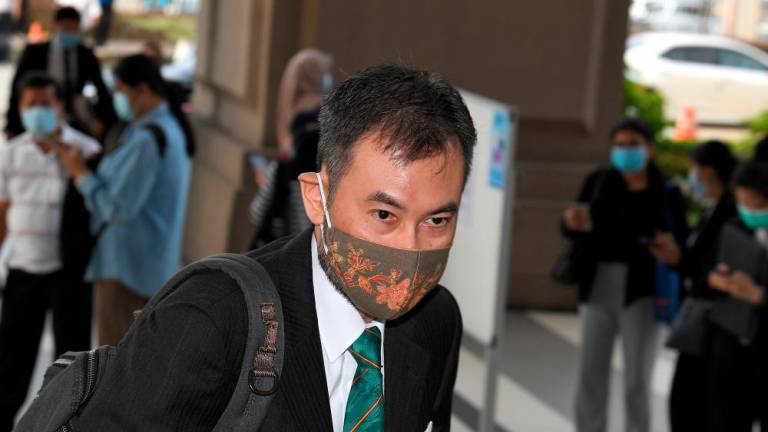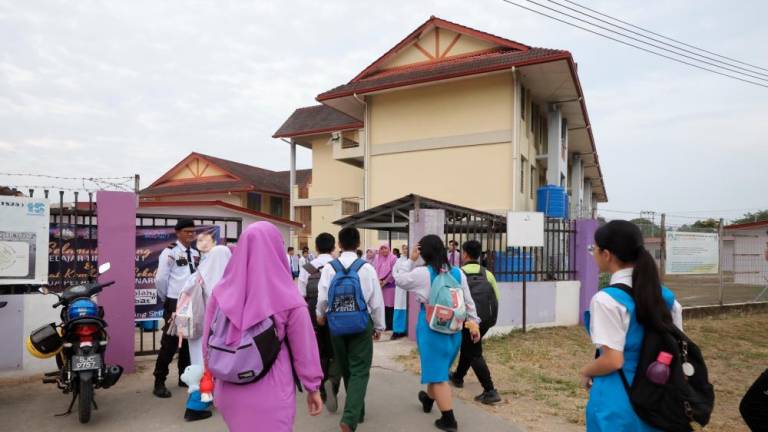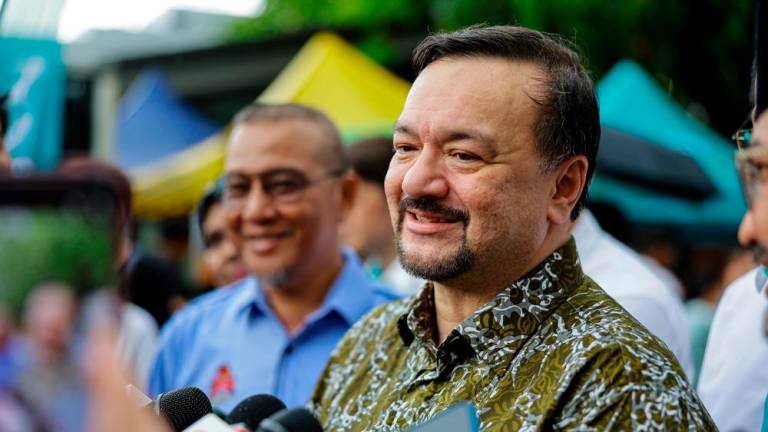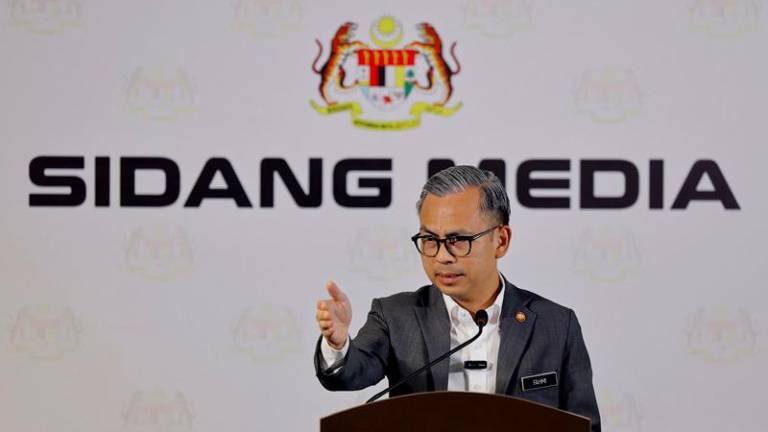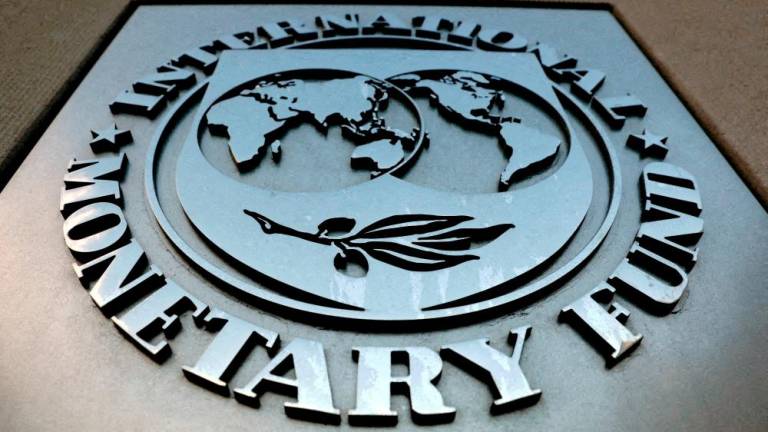DESPITE being rated among the top 30 most religiously-fervent nations in the world, Malaysia (ranked 23) is quite near the bottom in dealing with climate change, deluge and drought. In fact, none of these top 30 religious nations have fulfilled their responsibility as stewards of the planet, a primary role of humanity stated in scripture. Ironically, about half of these top 30 nations are embroiled in civil strife or civil war.
Surprisingly, Malaysians were caught totally off guard by the December deluge. Warning signs had flashed in the clouds as early as August when devastating rains hit Perak and Kedah, and a family in Sungai Petani had to climb up to the attic to save themselves from the “tsunami waters” entering their house.
In August too, the United Nations had described the worsening global climate situation as a code red for humanity.
One month earlier, in July, the deluge visited China and Europe prompting Dutch Premier Mark Rutte to declare that it was “without doubt” the result of climate change. Yet, there was no mention of climate change by any voter or candidate in the Malacca and Sarawak state elections, although both states would shortly be hit by torrential rains.
The typhoon winds started blowing in our direction and the storm clouds were gathering thickly well before December, as detected by weather satellites. Some Cabinet ministers instead made plans to go on year-end vacation.
With one of the largest Cabinets in the world, the prime minister should realise that the people’s expectations will also be correspondingly big.
Flood victims quickly judged the lack of preparedness and coordination by relevant ministries, agencies and departments as a huge letdown.
In this era of climate change, how pertinent is our top billing as a religious nation? The ranking was done by CEOWorld Magazine – the world’s leading business magazine for chief executive officers (CEO), chief financial officers, top-notch professionals, business leaders and high net worth individuals – on the basis of religious commitment (affiliation, the importance of religion, worship attendance and frequency of prayer).
Planetary stewardship is not listed as a criterion and traditionally it does not get mentioned in the sermons of any religion. And yet, it is one of the most important religious duties promulgated in scripture. But sermons traditionally emphasise dominion, just like colonialists dominate regions of the Earth and strip them of resources for selfish gain. We are religious in an outdated way by stressing affiliation, rituals of worship and prayer instead of good governance.
One of the oldest scriptures in the world, the biblical Book of Genesis, makes a clear affirmation of humanity’s primary responsibility in its opening chapter: “Let us make human beings in our image, make them reflecting our (God’s) nature so they can be responsible for the fish in the sea, the birds in the air, the cattle, and yes, Earth itself, and every animal that moves on the face of Earth.” Although plant life is not mentioned, it is implied as part of Earth care.
Ziauddin Sardar in his 1988 book Islamic Futures devotes a chapter to the duty of humans as the “khilafah”, or vicegerent, entrusted with care of the Earth. Ziauddin defines the scope of haram as including all that is destructive for humanity as individuals, the immediate environment we live in, and the environment at large.
To be religious, one must work for the universal common good of all beings. Hence, says Ziauddin, it is imperative that we cultivate a deep respect for nature, an appreciation for the interconnectedness of all life, and recognition of the unity of all beings. Humanity is accountable for misuse of its vicegerent powers and is liable to pay a price. Very prescient words, but maybe nobody in government tool notices.
Although soaking wet and cold in December, have we made plans for a drought when the climate coin flips over to its other side? Yes, deluge and drought now follow each other like inseparable twins.
Sitting on the rooftops of their flooded homes in December 2021 and seeing water everywhere, Malaysians may have forgotten that as early as March 2019, Penang was considering cloud seeding to induce rainfall as water levels in dams had dipped to critical levels.
In September 2019, dams in Malacca were drying up fast and they stayed dry into 2020. In May 2020, some Malacca residents had to take their baths in nearby mosques because of severe water rationing. The Seri Perigi waterfall in Kedah dried up in January 2020, following a drought. In August 2020, the water level in Penang’s Teluk Bahang reservoir had dropped so critically low that an old submerged road could be seen again.
With low rainfall for most of the year, 2019 was a time of regional drought, with the Philippines and Indonesia worse hit than Malaysia. July 2021 saw the drought visiting America, West Asia and North Africa, with record-breaking searing heat.
Are we ready for all-clear rainless skies in July 2022? Have we prepared for a drought? If we have not, it is already too late.
The next best thing to do is prepare for the next deluge, possibly in December 2022. We have less than a year to emulate Joseph, whose foresight is described in the Book of Genesis that we have referred to. Joseph, who was prime minister of Egypt under Pharoah, stockpiled grain surpluses in every city during a time of plenty and he released them for use when famine struck in later years. The story is also told in the Qur’an (Surah 12).
The prime minister and all the mentris besar and chief ministers should follow the Joseph Way and immediately start construction of a nationwide district stormwater catchment system to capture rainwater during a deluge and store it for release in dry times. Stormwater catchment will also minimise flooding by channelling some of the excess rainfall into huge storage tanks.
A district stormwater catchment system will have a series of linked components, beginning with pipes installed at school fields, community playgrounds, car park areas, roadsides and roof edges of community-owned and government-owned buildings in a district. These pipes funnel storm water into filters to eliminate dirt, and the filtered water is then stored in underground storage tanks the size of swimming pools. This will reduce flooding in populated areas.
The stored water is then pumped to a treatment plant, serving a few adjoining districts. Water treatment plants should be built in every populated district to decentralise this facility as the best way to avoid dry taps. The system comes into great use when drought strikes by ensuring that taps keep flowing in homes and businesses, and there is sufficient water to irrigate farmlands.
The writer champions interfaith harmony. Comments: letters@thesundaily.com




